It’s Still Personal
 It began, as many radio stories do, with serendipity. A small family-run café tucked into an office park in Jacksonville, Florida, had chosen as its soundtrack not the predictable blandishments of streaming playlists, but Keener—our online reincarnation of our favorite Detroit radio legend. The Fresh From the Garden Cafe had been there for years, quietly accruing a clientele devoted less to novelty than to the steady comforts of continuity.
It began, as many radio stories do, with serendipity. A small family-run café tucked into an office park in Jacksonville, Florida, had chosen as its soundtrack not the predictable blandishments of streaming playlists, but Keener—our online reincarnation of our favorite Detroit radio legend. The Fresh From the Garden Cafe had been there for years, quietly accruing a clientele devoted less to novelty than to the steady comforts of continuity.
When we learned that the proprietors had roots in Detroit, I mentioned Keener. Turns out the family grew up with the station. From then on, their dot glowed on the worldwide listener map each morning, a beacon in the South sharing the vibe through a Bluetooth speaker that bathed the restaurant in Motor City Music. Like the Keymen of WKNR’s prime, I would salute them with on-air shout-outs, gestures of fellowship across distance. And every time I visited, I left with more than a meal; Mary Joanne Bell, the café’s owner, insisted on pressing a free dessert into my hands.
Mary’s story was the familiar, improbable American one. She had arrived in Jacksonville with her youngest daughter, knowing no one. Within months she met Charlie, who would become her husband and partner. Over twenty-two years, they built not only a family but a café that became a cultural node—an echo of Detroit’s Greektown transplanted to Florida, serving spanakopita and gyros alongside sandwiches customized for each customer.
What I did not know was that behind Mary’s radiant welcome she was concealing lung cancer. On August 14, she left us. When my son shared the news this morning, it felt less like information than like a blow. For all the talk of radio’s impersonality, Mary was proof of the opposite—one of countless listeners whose lives seeped into ours and, in turn, shaped our own.
We gave her a Keener send-off today, recounting the story I now share, followed by Linda Ronstadt’s “Adios.” But the real memorial was what followed: a cascade of emails from listeners, condolences arriving within minutes, as though the hundred-thousand strong who drift in and out of the stream had found a fresh seam of commonality.
This, I thought, is what radio once was at its best. Not a jukebox but a companion, navigating the ordinary dramas of adolescence and adulthood together. The hit lines were the original social media, where listeners called not only to hear songs but to make themselves heard, to have their heartbreaks softened or their triumphs celebrated. The alchemy was always in the hands of the on-air talent, who could thread empathy through a microphone.
Today, in an era of automation, voice-tracking, and AI, radio has been homogenized to the point of anonymity. Its sense of humanity
The Enduring Legacy of the Woodward Dream Cruise
 It begins, as it always does, with a sound. Not the cannon-crack of a dragster, but something subtler, more elemental: the low, syncopated murmur of a V8, felt as much in the rib cage as heard by the ear. On the Thursday before Dream Cruise weekend, it surfaces along Woodward Avenue like an old memory come to life. The engines idle at red lights in Ferndale, slip past the boutiques of Birmingham, hum over the rolling flats of Bloomfield Hills. They are apparitions in chrome and steel, longtail Buicks, shark-fin Chevrolets, candy-colored Mustangs, returning to the first paved mile in America for their yearly visitation. Continue reading “The Enduring Legacy of the Woodward Dream Cruise” →
It begins, as it always does, with a sound. Not the cannon-crack of a dragster, but something subtler, more elemental: the low, syncopated murmur of a V8, felt as much in the rib cage as heard by the ear. On the Thursday before Dream Cruise weekend, it surfaces along Woodward Avenue like an old memory come to life. The engines idle at red lights in Ferndale, slip past the boutiques of Birmingham, hum over the rolling flats of Bloomfield Hills. They are apparitions in chrome and steel, longtail Buicks, shark-fin Chevrolets, candy-colored Mustangs, returning to the first paved mile in America for their yearly visitation. Continue reading “The Enduring Legacy of the Woodward Dream Cruise” →
Home of the Hits

Hollywood has always thrived on spectacle. Its streets and hills are littered with architecture that wears its fantasies on its sleeve, Egyptian temples, Chinese pagodas, Spanish haciendas, all vying for attention beneath the unblinking California sun. Yet, among this feverish jumble of styles, one of the city’s most enduring landmarks is a model of restraint: a modest concrete-and-glass cylinder capped by a slender, needle-like spire.
For nearly seventy years, the Capitol Records Building at 1750 Vine Street has been as integral to Hollywood’s identity as the brass stars embedded in the sidewalk below. With the passing of its architect, Louis Naidorf, at ninety-six, we are reminded that even in a city built on grand illusions, some of its most lasting icons began as the work of an untested hand. Continue reading “Home of the Hits” →
You Were On My Mind
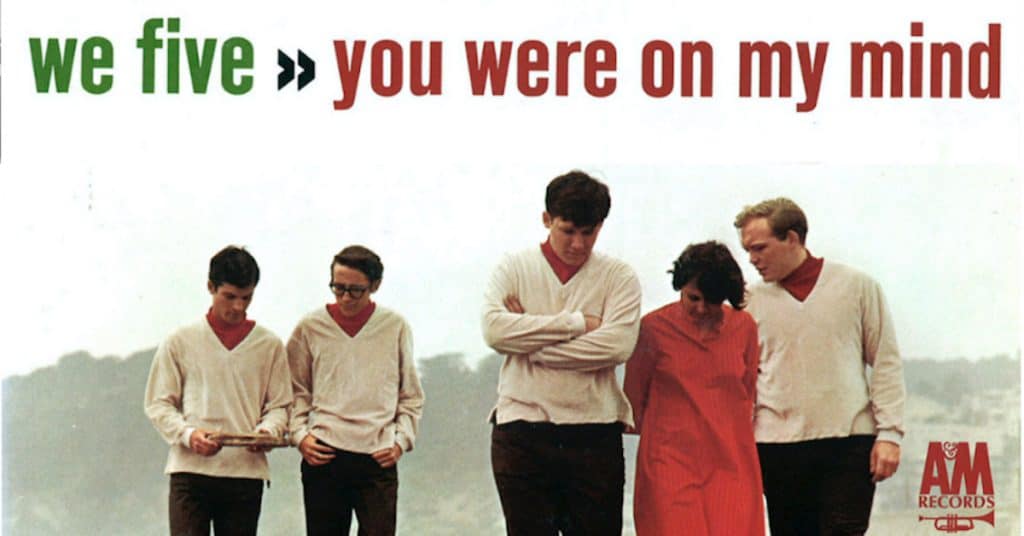
This week in 1965, amid the burgeoning folk revival and the first tentative stirrings of folk-rock, a band named The We Five emerged from San Francisco to claim a sudden and fleeting place in the pop landscape. Their single, “You Were On My Mind,” hit number one on the WKNR Music Guide. It would become both a defining anthem and an enduring enigma: a one-hit wonder whose resonance outlasted its creators’ brief moment in the spotlight.
The song itself was not originally theirs. It was written four years earlier by Sylvia Fricker, half of the Canadian duo Ian & Sylvia, in a modest hotel room in Greenwich Village, where the bathroom , ironically the only roach-free refuge , served as the incubator for what would become a quietly anguished meditation on memory and loss. Fricker’s lyrics, simple, spare, and suffused with a plaintive longing, caught the aching aftertaste of a heart half-broken, half-hopeful. Yet it was We Five’s interpretation that transformed the song into something altogether new: brighter, sharper, tinged with an electric edge that heralded a change in the musical winds. Continue reading “You Were On My Mind” →
The Quiet Orbit of Loni Anderson
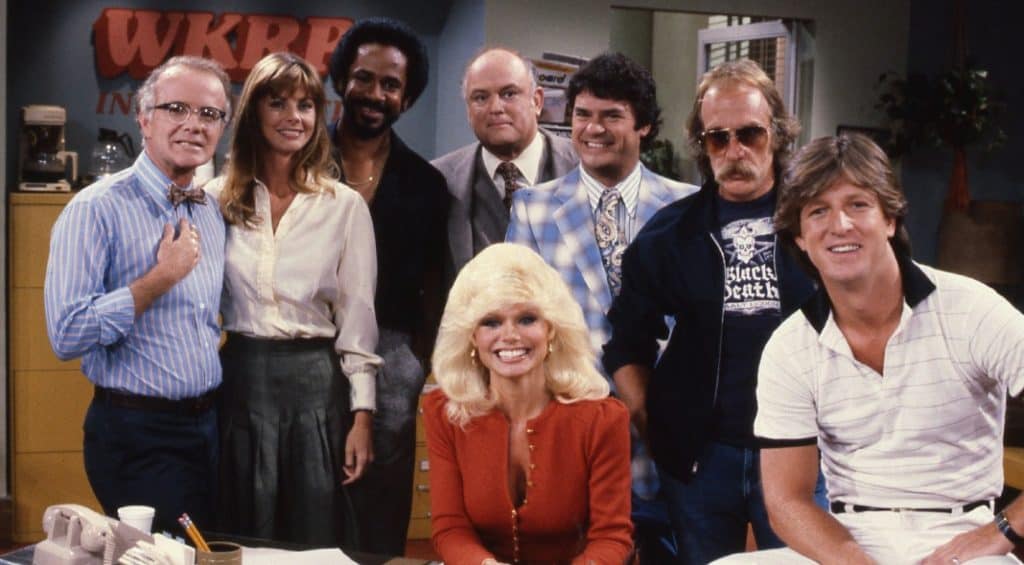 For those of us who grew up addicted to broadcast radio, with its open mics and closed-door politics, “WKRP in Cincinnati” offered both affection and satire. And in that sound booth of a sitcom, no one held the frequency quite like Loni Anderson, who left us this weekend at age 79. As Jennifer Marlowe, the station’s receptionist, gatekeeper, and quiet oracle, Loni brought an impeccable poise to the role, turning what might have been just another dumb blonde into a strategic triumph, a lesson in misdirection, elegance, and the sly power of feminine competence. Continue reading “The Quiet Orbit of Loni Anderson” →
For those of us who grew up addicted to broadcast radio, with its open mics and closed-door politics, “WKRP in Cincinnati” offered both affection and satire. And in that sound booth of a sitcom, no one held the frequency quite like Loni Anderson, who left us this weekend at age 79. As Jennifer Marlowe, the station’s receptionist, gatekeeper, and quiet oracle, Loni brought an impeccable poise to the role, turning what might have been just another dumb blonde into a strategic triumph, a lesson in misdirection, elegance, and the sly power of feminine competence. Continue reading “The Quiet Orbit of Loni Anderson” →
Ozzy Osbourne Courted Darkness and Outlived It
By the time we heard of Ozzy Osbourne’s passing at seventy-six, it felt less like the end of a life than the closing of a parable we’d been reading out loud for decades, unsure whether it was tragedy, farce, or miracle. His death on July 22nd was met with the kind of double take that only Ozzy could provoke: not he’s gone, but he wasn’t already? For most of his public existence, Osbourne seemed to teeter in a permanent twilight between collapse and comeback, a man whose biography was written in tabloid headlines and guitar feedback. That he lived as long as he did felt less like good fortune than a cosmic clerical error. Continue reading “Ozzy Osbourne Courted Darkness and Outlived It” →
The Unbearable Lightness of Being Ringo
 On the seventh of July, a Monday, amidst the unassuming hum of a world carrying on, Richard Starkey, saw his eighty-fifth year. The name he would later adopt—Ringo Starr—needs, of course, no introduction, yet it is the given name that feels more appropriate for the quietude of the occasion. If the Beatles were a singular, four-headed marvel of the twentieth century, then Ringo was its circulatory system—unshowy, indispensable, and possessed of a swing that was as intuitive as a heartbeat. Continue reading “The Unbearable Lightness of Being Ringo” →
On the seventh of July, a Monday, amidst the unassuming hum of a world carrying on, Richard Starkey, saw his eighty-fifth year. The name he would later adopt—Ringo Starr—needs, of course, no introduction, yet it is the given name that feels more appropriate for the quietude of the occasion. If the Beatles were a singular, four-headed marvel of the twentieth century, then Ringo was its circulatory system—unshowy, indispensable, and possessed of a swing that was as intuitive as a heartbeat. Continue reading “The Unbearable Lightness of Being Ringo” →
AT 40 at 55
On the Fourth of July weekend in 1970, America was still catching its breath from the cultural detonation of the previous decade. A new program came to life on just seven radio stations. “Here we go with the Top 40 hits of the nation this week on American Top 40,” the voice intoned. “The best-selling and most-played songs from the Atlantic to the Pacific, from Canada to Mexico.” It didn’t sound like revolution. It sounded like reassurance. Continue reading “AT 40 at 55” →
Bobby Sherman – A Quiet Finale

By June 24, 2025, the world had fallen silent—not with the frenzy that once trailed him, but with a gentle stillness. Bobby Sherman, the sweet-faced teen idol of the late 1960s, died at 81, his final days marked by the same modest grace that shaped his life. Continue reading “Bobby Sherman – A Quiet Finale” →
Lou Christie – The Voice That Pierced the Sky
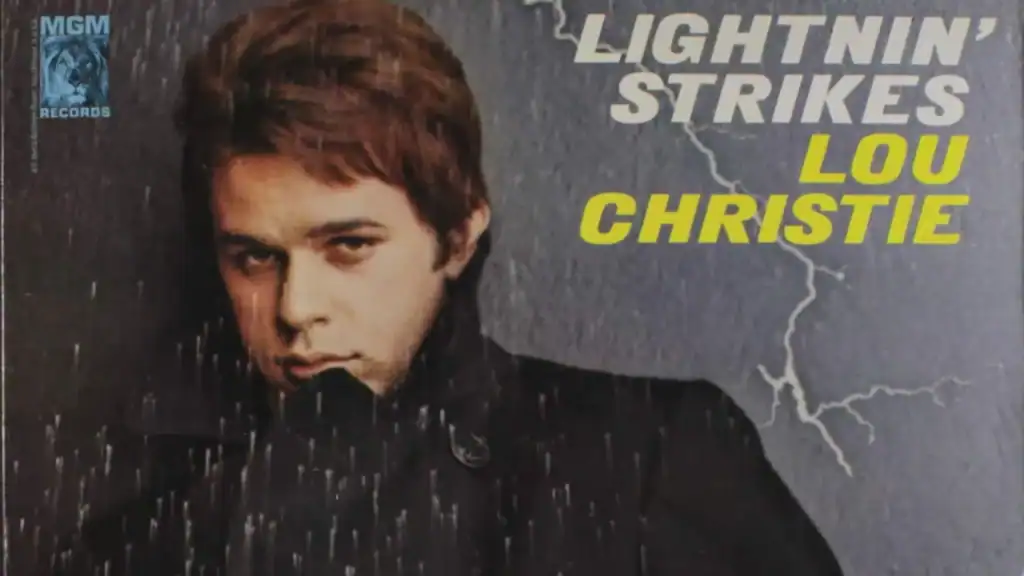 To hear a Lou Christie song on Keener for the first time was to experience something more than sound—a kind of pop exclamation mark hurled through a world of four-part harmonies and teenage platitudes. In a musical landscape dominated by the earnest chin-stroking of folk singers and the tight, syncopated machinery of Detroit’s Motown, Christie’s voice arrived like a lightning strike, cutting clean through the Keener airwaves. It was a helium-soaked, heaven-scraping falsetto that didn’t so much sing as spiral—vertiginous, improbable, and entirely unafraid of absurdity. It sounded less like a young man’s croon than the internal monologue of adolescence itself: dramatic, operatic, always on the verge of a glorious crack-up. Continue reading “Lou Christie – The Voice That Pierced the Sky” →
To hear a Lou Christie song on Keener for the first time was to experience something more than sound—a kind of pop exclamation mark hurled through a world of four-part harmonies and teenage platitudes. In a musical landscape dominated by the earnest chin-stroking of folk singers and the tight, syncopated machinery of Detroit’s Motown, Christie’s voice arrived like a lightning strike, cutting clean through the Keener airwaves. It was a helium-soaked, heaven-scraping falsetto that didn’t so much sing as spiral—vertiginous, improbable, and entirely unafraid of absurdity. It sounded less like a young man’s croon than the internal monologue of adolescence itself: dramatic, operatic, always on the verge of a glorious crack-up. Continue reading “Lou Christie – The Voice That Pierced the Sky” →
The Beatles’ EMI vs. Capitol Albums: How America Remixed the British Invasion
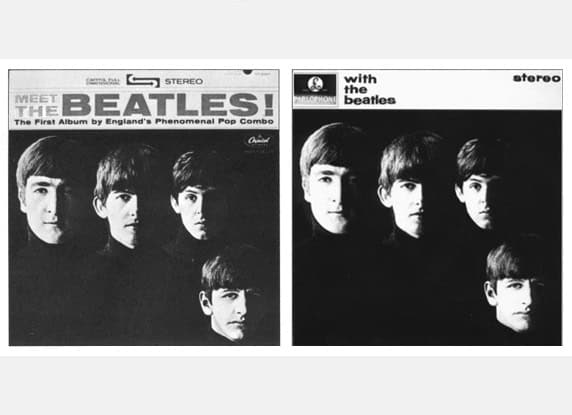 When Beatlemania exploded on Keener, it wasn’t just a cultural phenomenon, it was a marketing war. On one side of the Atlantic stood EMI’s Parlophone label, helmed by producer George Martin and engineer Geoff Emerick, who shaped the Beatles’ artistic journey with a balance of studio innovation and British sensibility. On the other, Capitol Records, EMI’s American subsidiary, played the hits game with a nose for profit. The result? Two Beatles discographies: one curated by the band and their producer, the other chopped, shuffled, and rebranded for U.S. ears.
When Beatlemania exploded on Keener, it wasn’t just a cultural phenomenon, it was a marketing war. On one side of the Atlantic stood EMI’s Parlophone label, helmed by producer George Martin and engineer Geoff Emerick, who shaped the Beatles’ artistic journey with a balance of studio innovation and British sensibility. On the other, Capitol Records, EMI’s American subsidiary, played the hits game with a nose for profit. The result? Two Beatles discographies: one curated by the band and their producer, the other chopped, shuffled, and rebranded for U.S. ears.
And those differences? They tell a deeper story about the transatlantic tug-of-war between artistry and commerce. Continue reading “The Beatles’ EMI vs. Capitol Albums: How America Remixed the British Invasion” →
Remembering Brian Wilson
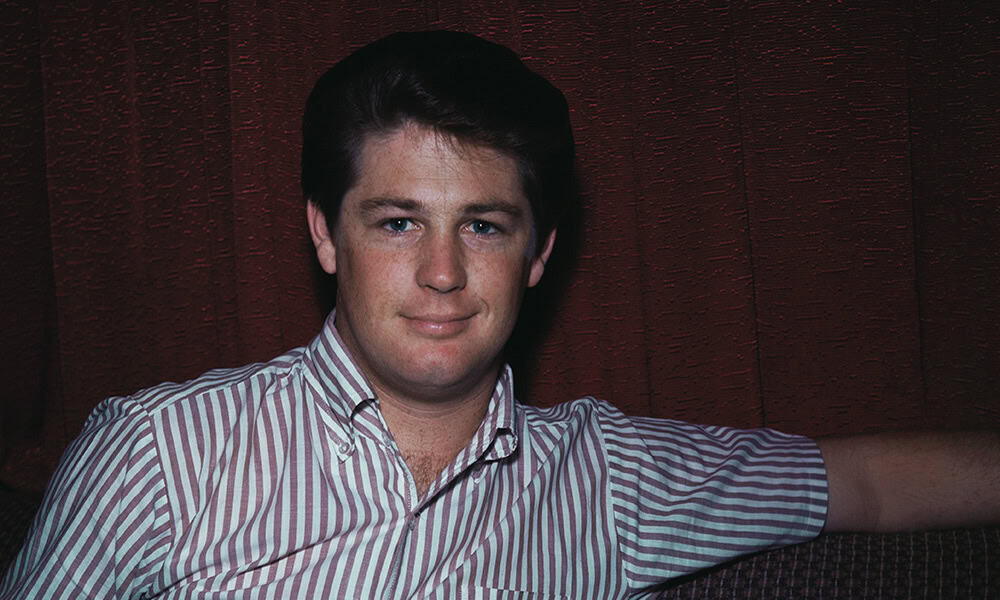 There was always a peculiar geometry to the music of Brian Wilson, a sense of vast, sun-bleached space being meticulously organized inside the four walls of a recording studio. To hear of his passing at eighty-two is to imagine the door to that studio finally closing, a quiet click after decades of miraculous, agonizing noise. Continue reading “Remembering Brian Wilson” →
There was always a peculiar geometry to the music of Brian Wilson, a sense of vast, sun-bleached space being meticulously organized inside the four walls of a recording studio. To hear of his passing at eighty-two is to imagine the door to that studio finally closing, a quiet click after decades of miraculous, agonizing noise. Continue reading “Remembering Brian Wilson” →



